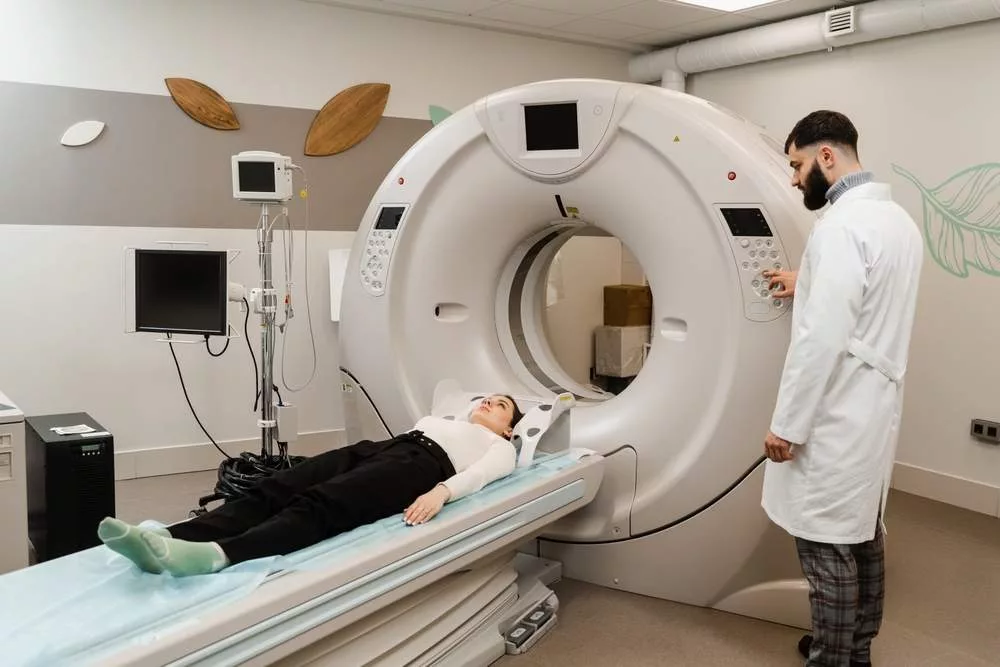Car accidents can be incredibly stressful, resulting in injuries and even fatalities. One of the most common injuries sustained in a car accident is a head injury. A head injury can range from a mild concussion to severe traumatic brain injuries and may have long-lasting and life-changing effects on those who suffer them. Let’s take a closer look at the types of head injuries, like the difference between whiplash and concussions, and the signs and symptoms to watch out for after a car accident.
How Car Accidents Lead to Head Injuries
Car accidents can lead to head injuries in a variety of ways. The most common way is through a sudden jolt or impact of the accident itself. When a car collides with another vehicle or object or comes to a sudden stop, the body can get thrown forward or to the side. This can cause the head to move quickly and often violently. This type of movement can cause the brain to bounce around inside the skull, causing damage.
Additionally, objects inside the car, such as loose items or other passengers, can also become projectiles during a collision and strike the head, resulting in a head injury. The force of impact may also cause the head to collide with part of the vehicle, like the steering wheel or window. Car accidents are a major cause of head injuries, and it’s important to take steps to minimize the risk of these injuries occurring to yourself and others.
Identifying Mild to Severe Symptoms of Head Injuries After a Car Accident
Signs and symptoms of a head injury can help indicate the severity of the injury. It is important to get prompt medical attention and treatment after a car accident and if you suspect a head injury. Symptoms can range from mild to severe, and they may not always show up immediately after the accident. Make note of any symptoms you experience, when you first notice them, and if they get better or worse with time. Here are some signs of a head injury after a car accident to look out for:
Mild Symptoms
- Headaches
- Dizziness or lightheadedness
- Blurred vision
- Ringing in the ears
- Sensitivity to light or noise
- Nausea or vomiting
- Confusion or disorientation
- Fatigue or drowsiness
Moderate Symptoms
- Loss of consciousness for a few seconds or minutes
- Slurred speech or difficulty speaking
- Numbness or weakness in the limbs
- Loss of coordination or balance
- Seizures or convulsions
- Agitation or combativeness
Severe Symptoms
- Loss of consciousness for more than a few minutes
- Severe and worsening headache
- Pupiled dilation or unequal pupil size
- Clear fluids draining from the ears or nose
- Inability to wake up from sleep
- Loss of bladder or bowel control
Common Types of Head Injuries After a Car Accident

There are several common types of head injuries that can occur after a car accident, including the following.
Concussion
A concussion is a mild traumatic brain injury that occurs because of a sudden blow or jolt to the head. Concussions can cause a wide range of symptoms, including headaches, dizziness, confusion, and memory problems.
Contusion
A contusion is a bruise on the brain from where the brain became shaken or jolted within the skull. Contusions can cause symptoms similar to a concussion, along with more severe symptoms like seizures and paralysis.
Skull Fracture
A skull fracture occurs when the bone of the skull is broken, typically because of a significant impact on the head. This can result in symptoms like headache, swelling, and bruising and even lead to more serious complications like brain bleeding or infection.
Whiplash
Whiplash is not technically a head injury but can be associated with head injuries because it can cause symptoms that affect the head and neck. A whiplash injury occurs when the head and neck are suddenly and violently jolted forward and then backward, damaging soft tissues in the neck. This can also cause symptoms like headaches, dizziness, and blurred vision.
Risks Associated with Head Injuries
Head injuries can have serious and potentially life-threatening consequences, especially if they are not treated promptly. Here are some of the risks associated with head injuries:
Traumatic Brain Injury
A traumatic brain injury, or TBI, is a serious head injury that can cause long-term damage to the brain. TBIs can lead to a range of physical and cognitive impairments, including memory loss, difficulty with movement and speech, and even changes in personality and behavior.
Hemorrhage
A head injury can result in bleeding in and around the brain, causing a lot of pressure and swelling in the area. This can result in serious complications, including a stroke or coma.
Post-Concussion Syndrome
In some cases, a head injury can lead to post-concussion syndrome, which refers to persistent symptoms like headaches, dizziness, and fatigue that can last for weeks or even months after the initial injury.
Seizures
A head injury can also increase the risk of seizures, which are sudden and uncontrolled bursts of electrical activity in the brain. Seizures can be harmful to your brain and cause you to fall or hit your head, potentially resulting in further injury.
Chronic Traumatic Encephalopathy
Repeated head injuries can put you at greater risk for a condition known as CTE, or chronic traumatic encephalopathy. This is a progressive brain disease that can cause symptoms like memory loss, confusion, and mood disorders.
Death
In severe cases, a head injury can be fatal, particularly if they cause significant bleeding or swelling in the brain.
Diagnosis and Treatment of Head Injuries After a Car Accident

The diagnosis and treatment of head injuries after a car accident should take place as soon as possible to help manage symptoms and prevent further complications. Here’s how a doctor can diagnose a head injury and what type of treatment options may be available to you:
Physical Examination
Your car accident doctor will typically perform a physical examination to check for obvious signs of injury, such as bruising, tenderness, or swelling around the head and neck. They may also check your eyes, ears, and nose for signs of injury.
Neurological Evaluation
Next, your doctor may assess a person’s neurological function by checking physical responses like reflexes, strength, coordination, and balance. They may also test cognitive functioning by asking you questions or to perform simple tasks.
Imaging Tests
Imaging tests such as a CT scan or MRI may be ordered to check for internal injuries, such as swelling or bleeding on the brain. These scans can provide your car accident doctor with detailed images of the affected area and also determine the location and extent of the injury.
Treatment Options
Treatment options for head injuries after a car accident may vary depending on the severity of the injury and the types of symptoms you experience. For a mild head injury, your car accident chiropractor may recommend rest and reduced activity while you recover. They will likely recommend a family member or friend assist with observing you for any further signs or changes in your symptoms. Non-invasive treatment options like chiropractic care can also help manage symptoms after a car accident. Stretches, exercises, and soft tissue mobilization can help relieve tension and stress while also helping to address various symptoms. Your car accident doctor will determine the most appropriate treatment option for your head injury.
If you’ve been in a car accident, schedule an appointment today at Affordable Chiropractic Killeen. Our car accident chiropractors are here to help diagnose and treat a wide range of car accident injuries, including head injuries.

